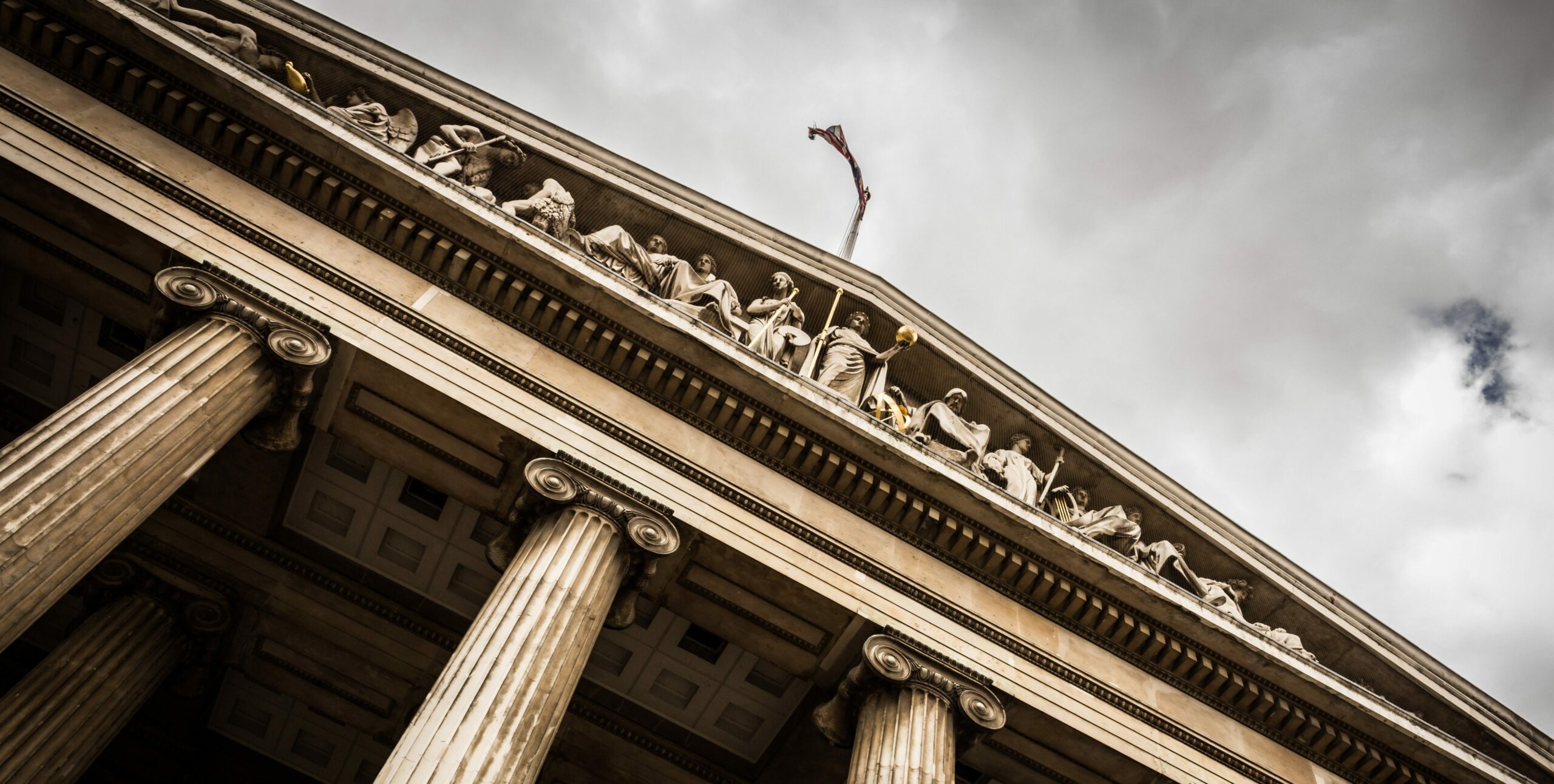Currently Empty: $0.00
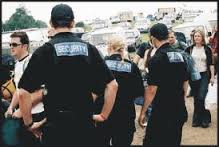
Security Guard; Dealing with People, Knowledge, Appearance…
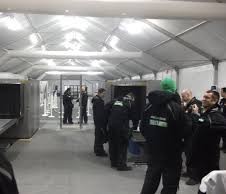
DEALING WITH PEOPLE
This is a continuation of articles that cover the duties and responsibilities concerning a private security officer. A lot of misconceptions concerning a security guards’ role in the workplace, since usually the security guard in not an employee of the client but is contracted out to the business through a guard company. This article will cover some basic guidelines of conduct when dealing with people.
Success in the private security and law enforcement industry depends largely on the ability in dealing with people effectively. Your success as a security officer depends on how well you interact with people from all walks of life. People react to how you look, how you speak, how you act, how you treat your peers and visitors.
Even though you are not a Client employee, you represent your customer as well as your employer. You are often the first contact the public has when entering a business, buildings, yards, and more than likely the last person they see when they leave. Visitors and employees will make immediate judgments about the guard based on their appearance, the guards’ demeanor, the body language, and of course the guards’ performance. These conclusions color their impression of the company visited, the security company and the operation as a whole. The first impression, is a lasting one. People may choose to cooperate or not cooperate with the guard depending on how the guard treats them. It is way better to have cooperation than not.
There are several basic guidelines for dealing with people, which are mostly common sense. Then again I have found out through the years common sense is not so common after all.
As stated in earlier articles, a security office must be polite and tactful. Use titles, such as “Mr.,” “Ms.” “sir” and “ma’am” and “please” and “thank you” when you address people, using those words it will make a big difference and goes a long way in getting cooperation.
Always use proper English when speaking to people. Speak clearly and at a well-modulated tone. Do not mutter or say things under your breath. A security officer must never use profanity, inappropriate slang, or disrespectful language while on the job, including with their coworkers and while dealing with people. This includes inappropriate gestures when speaking to people. When dealing with people a security guard must remain calm at all times, no matter how much they are provoked. A security officer should never show anger or impatience dealing with people and never ever argue with people.
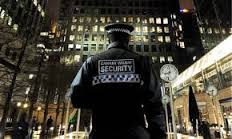 Know your duties. Remember ‘Knowledge is Power ’
Know your duties. Remember ‘Knowledge is Power ’
If a security officer is working in a facility dealing with people, the guard will often get ask questions about the location of offices, restrooms, or personnel in a facility they are protecting. A guard should be completely familiar with the layout of the facility, including the following: elevators, restrooms, cafeteria/snack bar, building management, ATM(s), first aid stations, fire extinguishers and entrances and exits. If it is part of the security guards’ duties to provide CPR, first aid when needed, the guard must make sure they are certified to do so. There could be some legal ramifications. Remember a security guard has just as much rights as an ordinary citizen, so if there is a ‘doctor in the house’ so to speak, then the security guard should assist to maintain order and let the trained professionals handle the first aid. It is a good idea to have all security guards’ have the basic CPR/1st aid training, especially if they will be dealing with people.
Appearance is Extremely Important
As stated in more detail with earlier articles, a security officer’s appearance is extremely important a clean, pressed, and properly worn uniform is very important. A part of a guards’ professional appearance and physical demeanor is crucial in their success. You won’t only look good, you will feel good. A guard should always maintain high standards of personal hygiene while on the job. Nothing is worse than a smelly security guard that you have to deal with first thing.
If a security guard is at a post that requires standing for a long period of time, such as a bank; the guard should not slouch or lean against walls, desks, security equipment or sit on the steps. If at a post that has a seat, such as a baggage scanner, the guard should not put legs up on desks or equipment. A guard should never rest their head on their hands, which gives people the impression that the guard is sleeping or bored and not serious about their duties.
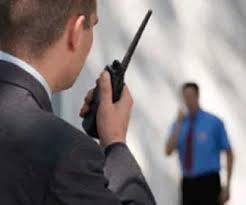 Observe and Report
Observe and Report
Be observant at all times, and take notes of unusual incidents or events that may concern you. Good reporting is especially good to justify your existence to your client. Your client should get a report from the guard, that makes them feel like if they were there on the job with you. Security officers, daily activity reports (DARs) as well as incident reports can be a valuable source of intelligence in the event a crime or serious incident. When a guard is obtaining information for a report, they must get all the facts as soon as possible, and be open minded when observing them. A guard should immediately report all incidents and media inquires to the supervisor and or client on duty. The post orders should cover this topic with emergency contact numbers and how to handle incidents and the press. If not this might be something that needs to be discussed prior to the guards assignment, since social media can deliver a message (good or bad) to million in an instant with everlasting damage whether fact or fiction.
 Dealing with Children
Dealing with Children
On the job, as a security officer you may have regular contact with children. It is very important that you understand how you should treat and interact with children. When dealing with children, you must try to balance friendliness with firmness. While children may be afraid or intimidated, others may be curious or even fascinated by a security officer, their uniform, and their equipment. Under no circumstances whatsoever should security guard ever unholster their firearm or display other equipment, such as handcuffs, or baton to anyone especially a child. Security guards’ equipment is for emergencies only. A guard should try to make a child feel more comfortable by smiling and using a friendly tone when they speak to them. If a child asks a security guard what they do, the guard should respond, ‘my job is to make sure you are safe while you are in the building.’ Never let a child touch your equipment, even if it is secured on your belt.
A security guard should never touch a child and must make sure the child’s parent or guardian is with the child. Many parents/guardians are extremely uncomfortable when adults who are not known to them have close contact with their children. Even if a guard thinks they are being kind and helpful by touching or holding a child, the child’s parent or guardian may think the behavior is inappropriate. They may not say anything to you, but they may very well complain to others in the building, and they might describe a perfectly innocent encounter in a way that raises doubts about your professionalism or integrity. Try to have no physical contact with a child unless it is absolutely necessary like in an emergency situation where the guard is compelled to aid or quickly move children from a dangerous threat.
Conclusion…
The Security guard will be the person that is expected to have answers to routine questions from visitors or employees, Having answers to questions is one of the most important and satisfing duties a guard will have. Dealing with people should be taken very seriously, a guards’ conduct is parimount to the success of any security program. The security guards’ knowledge is their power, know the post inside and out, its not that hard. The security guards’ duty location is and should be like their home away from home. Know it and protect it.
In the coming articles; dispute resolution, sexual harassment, unacceptable conduct.
until then B Safe-
Have you inspired to work for yourself, HERE IS YOUR OPPORTUNITY!


 0
0
